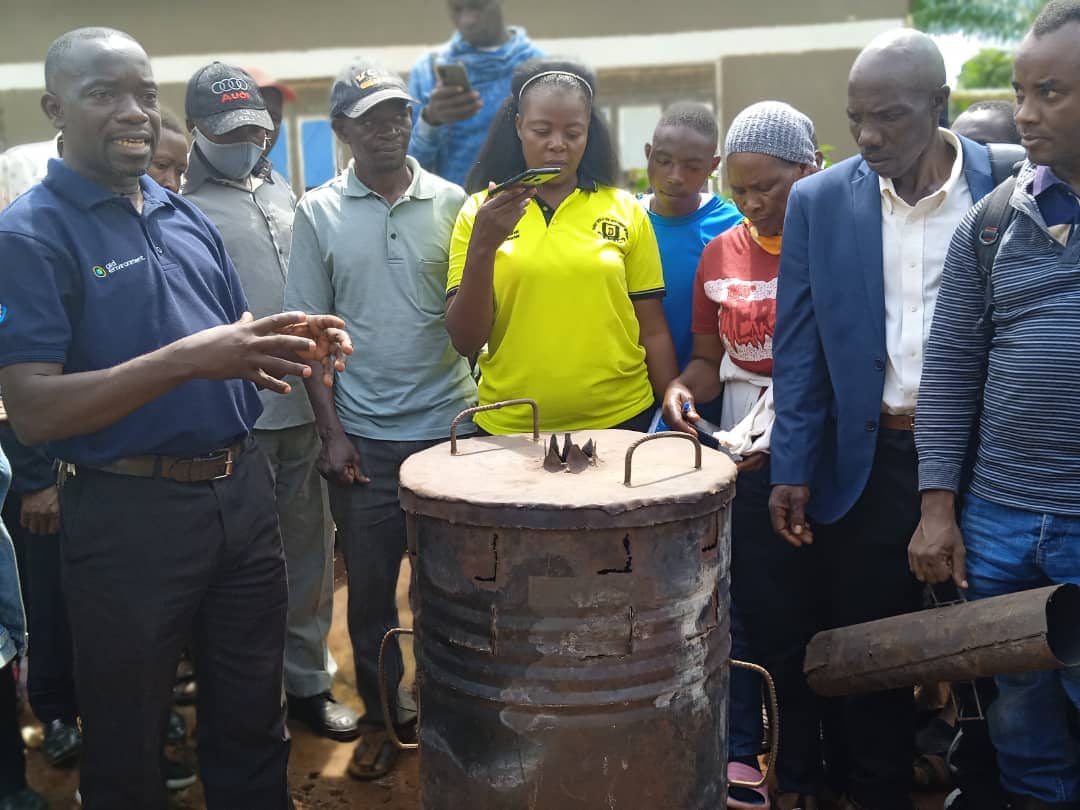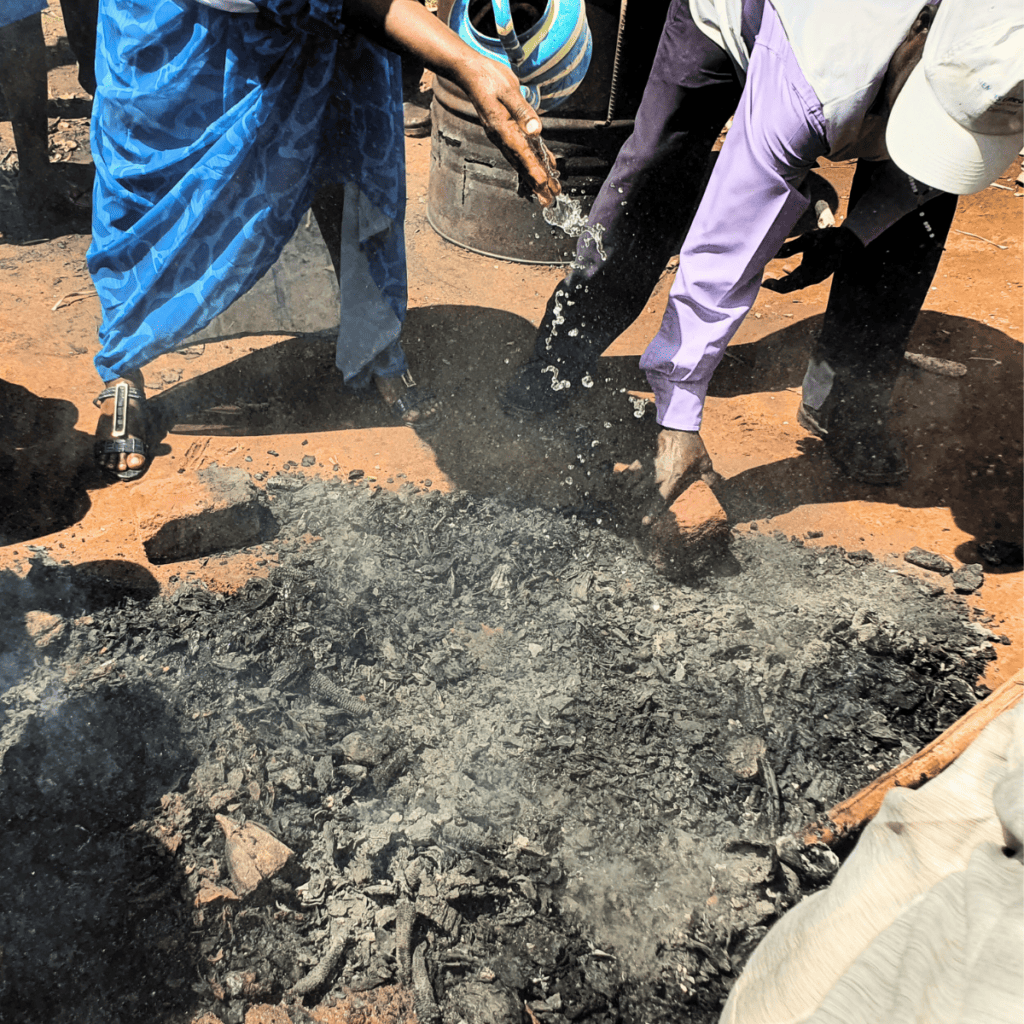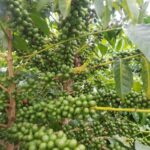Have you heard of biochar?

Written by Henry Stanley Mbowa
First, what is biochar?
Biochar is an organic fertilizer made from biodegradable waste materials through aerobic combustion in a barrel. The biodegradable materials used include domestic and garden wastes such as dry banana leaves, tree leaves, kitchen waste, maize cobs, beans shells, and plant trimmings. Other elements included in the process are sticks, bricks, a barrel, water, and an appropriately sized tin or container.
Prior to their usage of biochar as a strategy, farmers experienced low crop yields resulting from poor soil fertility, high fertilizer costs, poverty, and climate change. Further, farmers reported to have small plots which were intensively overutilized, without boosting soil fertility which meant low crop yields. This made farmers shy away from agricultural activities which led to food insecurity and a vicious cycle of poverty.
Empowering and educating farmers
In June, the AidEnvironment team in Uganda conducted training on biochar production and applicability at KSAM Farm in Kizigo village, Buikwe district. The purpose was to equip farmers and the community with knowledge and skills in biochar production and application to enable crops to flourish and grow and generate better yields. AidEnvironment staff trained the farmers in the identification of requirements for the biochar production process which included materials, tools and equipment.
Farmers were mobilized into groups and various training methods were employed including lectures, question and answer sessions (Q&A), and hands-on demonstrations to aid in better memorization and practice.
In the practical application sessions, farmers went through each of the steps in the process. They gathered materials, sun-dried them, made stands and placed the barrel on them, and added assorted waste materials into the barrel. They then lit them and covered the material and kept checking the combustion levels. Afterward, they emptied their barrel onto the floor and sprinkled water on materials, crushing materials into smaller particles and powder form.


After being made, it is recommended that biochar is left for 3-7 days to cool and then applied to plants, i.e., vegetables, coffee, bananas, potatoes, maize, and beans among others. This practical application exercise equipped farmers with first-hand practical skills that can be applied in their daily lives and routines and is suitable for building soil fertility to increase crop yields. Reportedly, biochar can be made at any time and kept for a long period which adds to the benefits of its use.
The training was in line with SDG 3 (Climate action) including climate SMART Agriculture, waste management, and food security vital for climate change resilience. Thus, biochar is very important as it protects soil organisms, keeps soil moist for a long time and supports crop growth all year round. If farmers implement the acquired competence in biochar production and application, they will be able to increase crops yields over time. This is because they would have done away with the use of expensive fertilizers by using their own made biochar fertilizers from locally available materials and at a cheaper cost.
“Biochar is an environmentally friendly fertilizer and when applied into the soil, it improves aeration, soil fertility, crop growth and increases crop yields. Thus, the use of biochar fertilizer is a strategy to enhance soil productivity, and climate change resilience among farmers.
I encourage communities, farmers, households and any other stakeholders to get fully involved in acquisition of competences in production, application and promotion of biochar as per its usefulness.”
- Henry Stanley Mbowa, Climate Finance Expert, AidEnvironment





